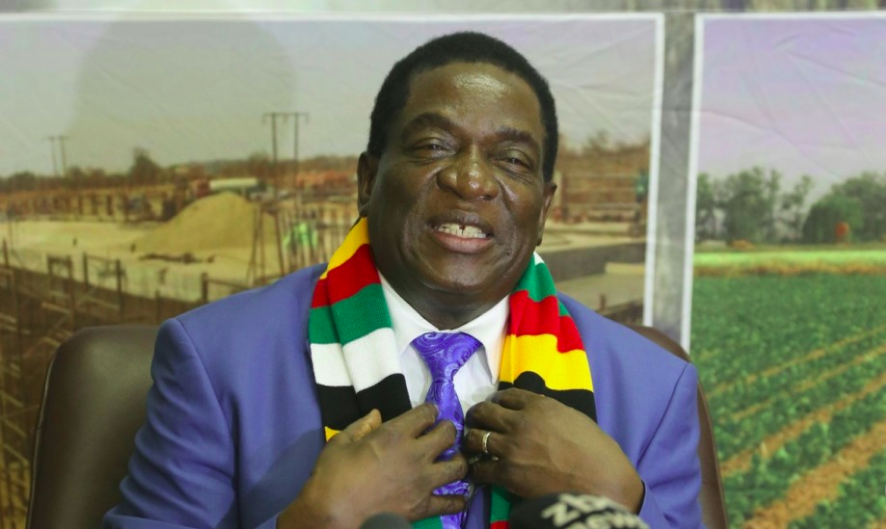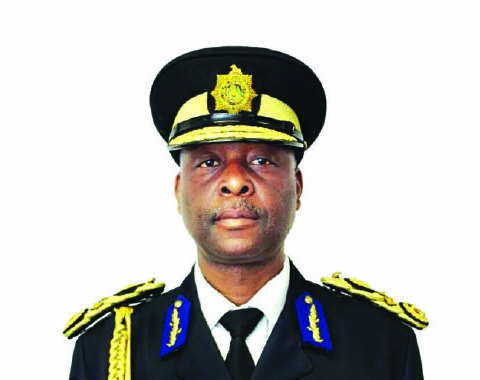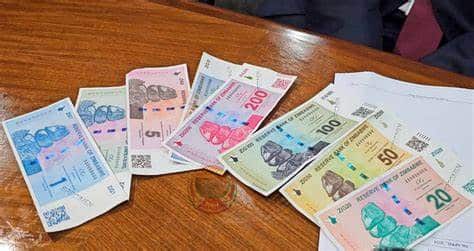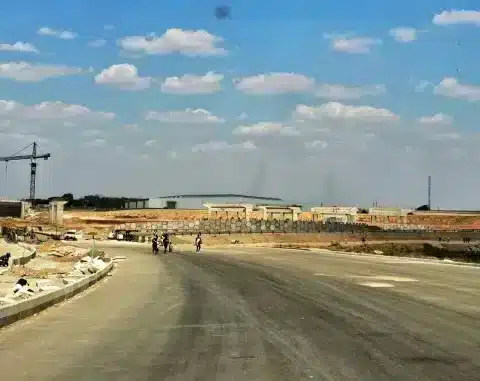Four months after the ousting of former Zimbabwean President Robert Mugabe, one of the world’s longest-ruling dictators, his successor is set to arrive in Beijing on Monday in a bid to ensure Beijing’s continued political and economic support.
The four-day visit by Emmerson Mnangagwa, his first outside Africa since taking office, comes as Beijing is seeking to extend its economic and geostrategic foothold on the continent via the “Belt and Road Initiative”, President Xi Jinping’s signature trade and foreign policy plan.
Zimbabwe, which despite its rich and diverse mineral resources is one of the poorest countries in Africa, must forge deeper economic relations with Beijing to end its decades-long political isolation under Mugabe, Mnangagwa said ahead of his visit.
“I will say thank you not only to the president of China but also the people of China for standing and supporting Zimbabwe during the hard times when the West imposed sanctions on us,” Xinhua quoted him as saying.
“The issue is not only about attracting capital into Zimbabwe. It’s an issue of leapfrogging after 18 years of isolation so that we catch up with the rest of the developing countries,” he said.
African countries still open to cooperation on China-funded projects, ambassador says
The 75-year-old former vice-president and erstwhile guerilla leader was sworn in as leader of the southern African nation in November after Mugabe’s 37-year reign ended in a bloodless military coup.
Like his predecessor, Mnangagwa has deep ties with Beijing, Xinhua said. These possibly date back to the 1960s when he received military training in China during Zimbabwe’s fight for independence from colonial, white-majority rule.
The circumstances surrounding the downfall of 94-year-old Mugabe, whom Beijing often described as an old friend, are unclear, although China has categorically denied it played any part in the military takeover.
Beijing had for decades been one of Mugabe’s most powerful allies and was a major trade partner, especially after the dictator was shunned by the West over human rights violations, and years of economic and political chaos.
However, just days before the coup, Zimbabwe’s army chief, General Constantine Chiwenga, visited Beijing, prompting speculation on whether China had played a role in the power transition.
Pundits generally agreed that China stood to benefit from the ousting of Mugabe – who had increasingly become a liability for Beijing – and the installation of a new government led by Mnangagwa.
The popular opinion now is that in view of its political isolation and stricken economy, Zimbabwe has few options other than to continue to rely on Beijing, at least in the near term.
Just days after the coup, Xi, who last visited the African country in 2015, sent his envoy and assistant foreign minister Chen Xiaodong to Harare to pass on his congratulations to Mnangagwa, according to Chinese state media. In the note, Xi promised to maintain Beijing’s all-weather friendship with Zimbabwe.
In his interview with Xinhua, Mnangagwa spoke highly of China’s belt and road plan, describing it as “a progressive initiative that will enhance global trade”.
“The ‘Belt and Road Initiative’ is indeed a vision for the future,” he said. “Zimbabwe is one of those countries that have embraced it.”
However, China’s growing presence in Zimbabwe, especially in the mining, farming and tobacco sectors, is not without controversy, especially amid intense infighting between the new president and his opponents.
Just last month, Chinese diplomats in Harare had to deal with the fallout from the publication of a “looters list”, in which Mnangagwa sought to name and shame those companies and individuals – including several Chinese mining firms – he claimed had been involved in illicit business dealings in Zimbabwe.
Mnangagwa’s China visit follows a string of other high-level exchanges between Beijing and African nations, fuelling concerns about Beijing’s expansionist role and long history of backing non-democratic countries on the continent.
In the past fortnight, China’s top diplomat Yang Jiechi has travelled to South Africa, and Xi has rolled out the red carpet in Beijing for two African presidents, namely Cameroon’s Paul Biya, who has been in power for 35 years, and Namibia’s Hage Geingob.
The frequency of diplomatic exchanges between China and Africa has increased in the lead-up to a bilateral summit in Beijing in September, which upgrades and replaces the decade-old Forum on China-Africa Cooperation.
In an apparent bid to defend China against attacks by foreign experts and media, both Biya and Geingob, after securing numerous investment deals with Beijing, went on record to rebut comments accusing it of being a neocolonialist.
“China never colonises any African country, China never treats us as second-class citizens,” Geingob was quoted by Xinhua as saying.
Shortly before his sacking last month, former US Secretary of State Rex Tillerson accused China of engaging in neocolonialism in Africa and Latin America by exploiting resources, creating a “debt trap” and taking away sovereignty under the guise of the belt and road plan.
US Secretary of State Rex Tillerson says African countries should weigh Chinese loans ‘carefully’
China, which surpassed the United States as Africa’s top trading partner in 2009, has markedly stepped up its spending on the continent in recent years, with the construction of railway lines, motorways, airports, power stations and deepwater ports.
Also, amid rampant criticism of its rapid military and maritime expansion, Beijing in September conducted its first live-fire exercises in its only overseas military base, in Djibouti on the Horn of Africa, which it had previously described as a logistical support facility.
This article appeared in the South China Morning Post print edition as: New Zimbabwe leader starts China visit








